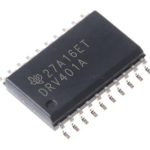
Introduction
In the rapid technological advancement, the healthcare industry is undoubtedly the transformative power of innovation. One of the most promising developments in this domain is the integration of Smart Health Monitoring with Wireless System-on-Chips (SoCs). This combination has the potential to revolutionise healthcare, making it more efficient, accessible, and personalised. This article comprehensively explains the realm of Smart Health Monitoring with Wireless SoCs, exploring its applications, benefits, challenges, and the future it promises.
What Are Wireless SoCs?
Wireless System-on-Chips, or Wireless SoCs, are compact integrated circuits that combine various electronic components essential for wireless communication. They typically include a microcontroller, wireless transceiver, sensors, and power management units, all integrated onto a single chip. These chips are designed for low power consumption, high performance, and wireless communication capabilities. In addition, wireless SoCs are the building blocks of many modern wireless devices, from smartphones and IoT to, most notably, Smart Health Monitoring Systems.
The Emergence of Smart Health Monitoring
Smart health monitoring refers to integrating advanced technologies into healthcare to monitor patients’ health in real time. It encompasses proactive devices, including wearable devices, implantable sensors, and remote monitoring systems. The aim is to provide individuals and healthcare professionals with real-time accurate data and enable patients to manage their health.
Potential Benefits of Smart Health Monitoring with Wireless SoCs
Smart health monitoring has the potential to improve healthcare outcomes, providing multiple benefits, such as:
- Real-Time Monitoring: One of the most significant advantages is monitoring health in real-time, providing immediate feedback and alerts during emergencies or health deteriorations.
- Improved Accessibility: Patients in remote or underserved areas can access healthcare services more efficiently through remote monitoring, reducing the burden on healthcare facilities.
- Improved Patient Engagement: Smart Health Monitoring fosters active patient participation in their health management. Users can easily track their progress, set goals, and make informed data-driven decisions.
- Early Detection: Remote monitoring and real-time data analysis can detect health issues at their earliest stages, especially for chronic diseases like diabetes, where early intervention can prevent complications.
- Reduced Healthcare Costs: By minimising the need for frequent in-person visits and hospitalisations, smart health monitoring systems can significantly reduce healthcare costs for patients and providers.
- Enhanced Patient Engagement: Smart health monitoring encourages patients to consider their healthcare, leading to better compliance with treatment plans and healthier lifestyles.
- Data-Driven Healthcare: Healthcare providers can make informed decisions based on accurate and continuous patient data, leading to more personalised and effective treatments.
Applications of Smart Health Monitoring with Wireless SoCs: Revolutionising Healthcare
Wireless SoCs for connected health devices can be integrated into various applications, such as:
- Wearable Health Devices – The technology has multiple applications in wearable health devices, leading to improved health outcomes. These devices may include:
- Smartwatches: Smartwatches equipped with Wireless SoCs can monitor various conditions, including heart rate, sleep patterns, and physical activity and even detect falls. They provide users with real-time health insights and facilitate early intervention in case of anomalies.
- Fitness Trackers: These devices use Wireless SoCs to measure steps taken calories burned and track physical activity. They encourage a healthier lifestyle by setting goals and providing feedback.
- Continuous Glucose Monitors (CGMs): CGMs equipped with Wireless SoCs offer real-time glucose level data to diabetic patients–managing their condition more effectively.
- Remote Patient Monitoring – Smart health monitoring integrated with SoCs can contribute to remote patient monitoring in various ways, including:
- Chronic Disease Management: Patients suffering from chronic conditions like hypertension, diabetes, or heart disease can benefit from Wireless SoCs-enabled devices that monitor vital signs and send data to healthcare providers. This reduces hospital readmissions and improves patient outcomes.
- Aged Care: Wireless SoCs in smart home devices can monitor the well-being of elderly individuals living independently. They can detect falls, irregular activities, or deviations from routine, sending alerts to caregivers.
- Postoperative Care: Wireless SoCs can monitor patients remotely after surgery, enabling healthcare professionals to track recovery progress and respond promptly to any complications.
- Implantable Devices – SoCs-based devices facilitate implantable devices, such as:
- Pacemakers and Implantable Cardioverter-Defibrillators (ICDs): Wireless SoCs in these devices allow cardiologists to remotely adjust settings and receive real-time data on a patient’s heart condition, improving patient care.
- Neurostimulators: Implantable neurostimulators equipped with Wireless SoCs can manage chronic pain and neurological disorders. These devices can be adjusted remotely, reducing the need for frequent in-person visits.
Smart Health Monitoring with Wireless SoCs: Challenges and Concerns
While the potential benefits are substantial, the adoption of Smart Health Monitoring with Wireless SoCs faces several challenges, including:
- Data Security and Privacy: Wirelessly storing and transmitting sensitive health data raises concerns about data security and privacy. Robust encryption and data protection measures are essential.
- Interoperability: Ensuring different devices and systems communicate seamlessly is a complex challenge, requiring standardised protocols and interfaces.
- Regulatory Compliance: Healthcare regulations and standards must evolve to keep pace with technological advancements, ensuring the safety and effectiveness of these devices.
The Future of Smart Health Monitoring with Wireless SoCs
The future holds immense promise for smart health monitoring with wireless SoCs. Advancements in AI and machine learning will possibly enhance the analysis of health data, enabling predictive healthcare and early disease detection. Additionally, the continued miniaturisation and improved power efficiency of Wireless SoCs will allow the development of even smaller, longer-lasting health monitoring devices.
Wrapping Up
Smart Health Monitoring with Wireless SoCs is poised to transform healthcare–empowering patients, improving healthcare access, and enhancing the quality of provided care. However, addressing the associated challenges, particularly in data security and interoperability, is crucial to ensuring widespread adoption and realising its full potential in revolutionising healthcare. The future of healthcare is looking smarter and more connected than ever before, as it promises to improve health outcomes, reduce healthcare costs, and ultimately create a healthier society.





















